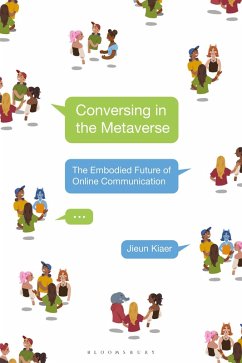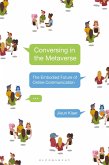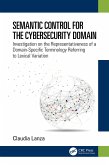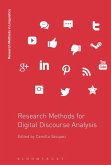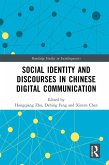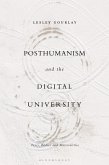How do metaverse technologies change how we communicate with each other? This book explores how existing metaverse technologies affect our communication, both verbal and non-verbal, as well as the ramifications of these effects.
Communication is central to the human experience, and how we currently communicate (and will communicate) can affect our sense of identity and relationships with others, which can have huge long term societal repercussions. Utilising methods of digital ethnography and linguistic landscape, this book takes an in-depth look at what exactly the metaverse is-or will be-and tracks the technological and societal trends that surround it. To do so, it questions what differentiates the metaverse from earlier connected virtual worlds like World of Warcraft or Second Life, and features extracts from interviews with the users and developers of current metaverses, such as Roblox, Minecraft, and Gather.town. It also investigates the impact of the pandemic in changing and accelerating how we communicate in virtual spaces.
Communication is central to the human experience, and how we currently communicate (and will communicate) can affect our sense of identity and relationships with others, which can have huge long term societal repercussions. Utilising methods of digital ethnography and linguistic landscape, this book takes an in-depth look at what exactly the metaverse is-or will be-and tracks the technological and societal trends that surround it. To do so, it questions what differentiates the metaverse from earlier connected virtual worlds like World of Warcraft or Second Life, and features extracts from interviews with the users and developers of current metaverses, such as Roblox, Minecraft, and Gather.town. It also investigates the impact of the pandemic in changing and accelerating how we communicate in virtual spaces.

